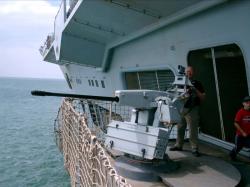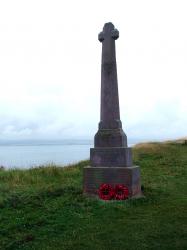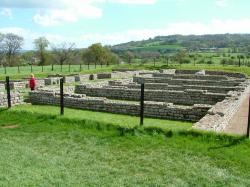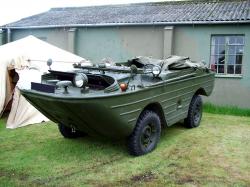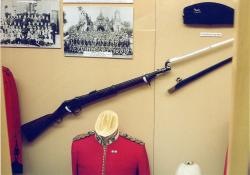Translate this Page
Oporto
Battle Name : Oporto
Date(s) : 12 May 1809
Part of : The French Revolutionary and Napoleonic Wars , The Peninsular Campaign ,
Outcome : A victory for British/Portugese Army over French Peninsular Army [Soult]
Type of battle : Land
Summary
Soult had nearly 12,000 men [of his nominal corps strength of 23,500] in the city of Oporto and was trying to hold the line of the Douro. Wellington's first action after landing in Portugal was to march against Soult as the most serious threat to Lisbon. The line of the river Douro was made even more impassable because Soult moved all boats to his bank of the river. In a brilliant move four wine barges were secretly captured from the French bank of the river and the Buffs [3rd Foot, East Kents] 30 men per barge crossed the river and held a bridgehead while Wellington ordered other troops across. Soult rushed troops from guarding the waterfront to face the crossing. As soon as he had done this the towns people launched their boats and ferried British troops across to attack the other flank of Soult's 'front'. The French believed their position was untenable and withdrew from the town.
Location
The town of Porto, Portugal, where the river Douro reaches the sea. (Portugal)
More details
Soult had been ordered, by Napoleon, to march south from Coruña, take Oporto and then march on to take Lisbon. All this with 23,500 men against small, but fanatical opposition along a route with very poor roads and which were, in places, almost impassable. He finally took Oporto two months [29th March] after Napoleon's timetable. His corps was reduced in strength and too exhausted to consider any further move for weeks.
His communications with other French units was cut by Portugese irregulars closing around his rear. He had decided that he could not hold against Wellington and had already detached Mermet's division with the baggage and artillery parks to move away to the northeast I.e. towards Spain.
Soult had nearly 12,000 men [of his nominal corps strength of 23,500] in the city of Oporto and was trying to hold the line of the Douro. Wellington's first action after landing in Portugal was to march against Soult as the most serious threat to Lisbon. He drove in all resistance encounter on route but reached the river Douro, about as wide and deep as the river Thames through London, to find Soult had commanered all boats and moved them to his bank of the river. A British officer, Colonel John Waters, was reconnoitering the bank when a local barber showed him a small skiff that had been hidden. In this with four peasants he had hastily persuaded to assist him he mangaed to get four wine barges from the French side of the river without the French detecting the move. British troops the Buffs [3rd Foot, East Kents] 30 men per barge crossed the river and held a bridgehead while Wellington rapidly ordered other troops across. The Buffs had nearly the whole battalion established behind the walls of a convent before the first French defenders appeard. Three battalions of the 17th Léger came to the attack but they were swept by grape shot from British guns established on the south bank. In spite of the determined French attacks, they lost one man in four, the British continued to reinforce the bridgehead. As Soult became aware of the breech he ordered troops from guarding the waterfront to move to repel the crossing. As the French troops left the waterfront the Portugese towns people launched their boats and ferried British troops across to attack the other flank of Soult's 'front'. Soult recognized his position was untenable and ordered a withdrawal from the town.
Soult's retreat might have been near total capitulation but Major General John Murray with a strong brigade and two squadrons of cavalry failed to carry out Wellington's orders to block the French retreat. Wellington, in preparation for the French retreat had put Murray's detached command across the river five miles up stream from Oporto where a formed body of troops across the route could well have held the disorganized French rabble. Other moves by Beresford, acting on his own initiative, and the Portugese Silveira also failed to block the French retreat in time. However their attempts meant that the only route open to Soult was 'a scramble over the Serra da Louca' back into Spain. Wellington did not attempt to follow him over the mountains as his troops were almost out of supplies; further more his orders expressly forebad him from moving into Spain. In ten days Soult's corps had lost 4,500 men, its guns, its baggage and its military chest. Losses on the British/Portugese side were negligable.
Casualty figures
French Peninsular Army [Soult]
- Number engaged :
- 11,200
- Casualties :
- 2,100 (18.75%)
British/Portugese Army
- Number engaged :
- 24,000
- Casualties :
- 45 (0.19%)

